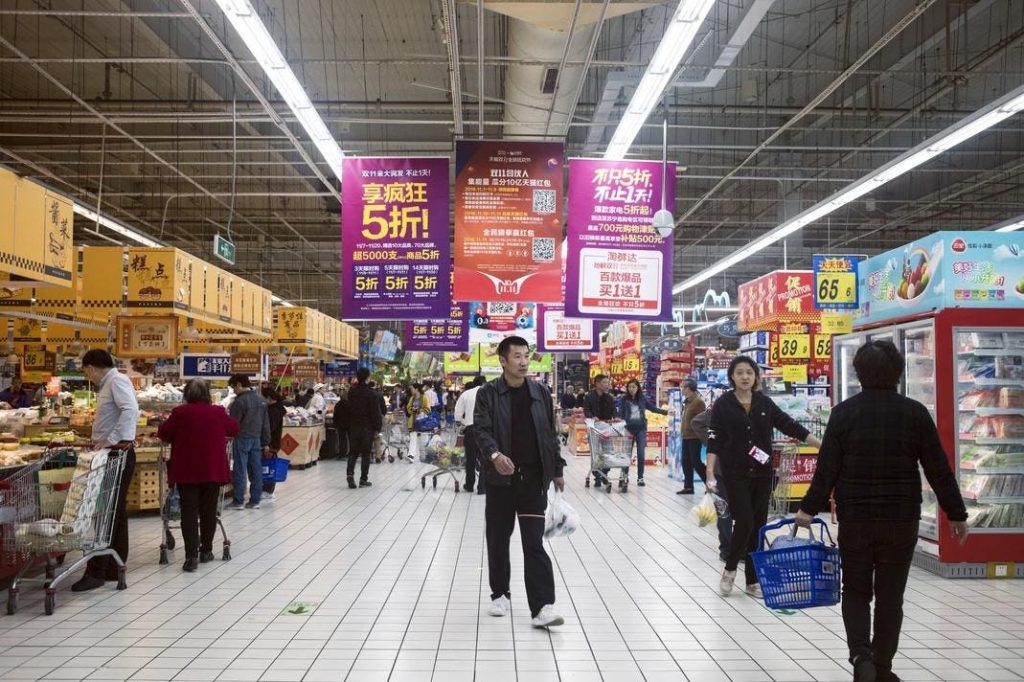Alibaba Divests Sun Art Stake, Prioritizing Core Business Amid Economic Headwinds
In a strategic move reflecting its renewed focus on core operations, Alibaba Group Holding has agreed to sell its controlling stake in Sun Art Retail Group, a leading Chinese hypermarket operator, to private equity firm DCP Capital. The deal, valued at up to HK$12.3 billion (US$1.6 billion), marks Alibaba’s continued divestment of non-core assets despite the anticipated substantial financial loss. The transaction involves the transfer of over 70% of Alibaba’s stake in the Hong Kong-listed Sun Art, which operates the popular RT-Mart chain and the membership-based M-Club stores, a format reminiscent of Costco’s warehouse club model. While the divestment is projected to result in a significant loss of approximately US$1.8 billion for Alibaba, the company maintains that the move aligns with its strategic objective of streamlining its portfolio and maximizing shareholder value.
This divestiture follows a series of similar actions by Alibaba, including the sale of its stake in Intime department store chain in December. These moves signal a clear shift in the e-commerce giant’s strategy, as it moves away from previous diversification efforts to concentrate on its core e-commerce business. Market analysts had anticipated this move, given Sun Art’s recent struggles and Alibaba’s broader strategic realignment. The divestment underscores Alibaba’s commitment to optimizing its resource allocation and adapting to the evolving economic landscape in China. This strategic streamlining comes at a time when the Chinese economy is grappling with a slowdown and heightened competition in the retail sector.
Alibaba’s initial investment in Sun Art in 2017, followed by a substantial $3.6 billion injection in 2020, was driven by an ambitious "new retail" strategy. This vision aimed to integrate online and offline retail experiences, offering seamless omnichannel deliveries and personalized shopping experiences powered by sophisticated customer analytics. However, the challenging economic environment, compounded by the impact of stringent Covid-19 measures and a prolonged property crisis in China, dampened consumer spending and hindered the realization of this strategy’s full potential. Sun Art’s performance suffered as a result, leading to store closures, significant job cuts, and a dramatic decline in its stock value.
The downturn in Sun Art’s fortunes reflects the broader challenges facing the retail sector in China. The combination of economic headwinds and changing consumer behavior has created a difficult operating environment for traditional brick-and-mortar retailers. Sun Art’s declining sales, store closures, and workforce reductions are indicative of the pressures facing the industry. The company’s latest financial reports paint a stark picture of its struggles, with sales figures significantly below expectations. The substantial decline in Sun Art’s share price over the past five years highlights the challenges faced by the company and its investors.
Alibaba itself is not immune to the heightened competition in the Chinese e-commerce market. In recent years, the company has faced increasing pressure from rivals like PDD Holdings, which has successfully attracted budget-conscious consumers with deep discounts amid the economic downturn. This competition has eroded Alibaba’s market share and prompted a strategic reassessment under its new leadership team, helmed by CEO Eddie Wu. The company is now focusing on regaining lost ground by emphasizing value-for-money products and leveraging artificial intelligence for targeted marketing, aiming to recapture its dominance in the fiercely competitive e-commerce landscape.
Alibaba’s decision to divest its stake in Sun Art represents a pragmatic response to the challenging market dynamics and the company’s evolving strategic priorities. By shedding non-core assets and streamlining its operations, Alibaba aims to enhance its focus on core e-commerce and regain its competitive edge. The anticipated financial loss associated with the divestment is viewed as a necessary step towards long-term sustainable growth and maximizing shareholder value. This move underscores Alibaba’s adaptability and its commitment to navigating the complex and ever-changing economic landscape in China. The company’s future success will depend on its ability to execute its new strategy effectively and reclaim its position as a leading force in the Chinese e-commerce market.











